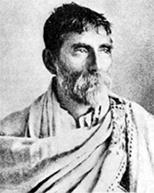Indian Economy
No Orders of Hydroxychloroquine to BCPL
- 10 Apr 2020
- 3 min read
Why in News
It has been alleged that the central government is not giving orders to the Bengal Chemicals & Pharmaceuticals Ltd. (BCPL) to produce anti-malarial drugs.
Key Points
- The Bengal Chemicals & Pharmaceuticals Ltd. (BCPL) is the only Public Sector Undertaking (PSU) that produces the anti-malarial drug in the country, i.e. manufactures chloroquine phosphate.
- The government-owned corporations are termed as Public Sector Undertakings (PSUs) in India. In a PSU majority (51% or more) of the share capital is held by the central government or by any state government or partly by the central governments and partly by one or more state governments.
- The Comptroller and Auditor General of India (CAG) audits government companies.
- Bengal Chemical & Pharmaceutical Works Ltd., precursor of the Bengal Chemicals & Pharmaceuticals Ltd, was formed by Acharya Prafulla Chandra Ray on April 12, 1901.
- The company became the first Indian Company to manufacture quality Chemicals, Drugs, Pharmaceuticals and Home Products, employing indigenous technology, skill and raw materials.
- The Management of Bengal Chemical was taken over by the Government of India and the Union Government nationalized the Organization on December 15, 1980. A new Government Company, Bengal Chemicals & Pharmaceuticals Ltd. (BCPL) was launched on March 27, 1981.
- Known as “Father of Indian Chemistry”, Prafulla Chandra Ray (1861-1944) was a well-known Indian scientist and teacher and one of the first “modern” Indian chemical researchers.
- He discovered the stable compound mercurous nitrite in 1896.
- The British Government first honoured him with the imperial title of CIE (Companion of the Indian Empire); and then with the Knighthood in 1919.
- In 1920, he was elected General President of the Indian Science Congress.
- As a nationalist he also wanted that the Bengalis should come up in the world of enterprise. He himself set an example by establishing a chemical firm called the Bengal Chemical and Pharmaceutical Works (1901).
- He was a true rationalist and was completely against the caste system and other irrational social systems. He persistently carried on this work of social reformation till he passed away.







